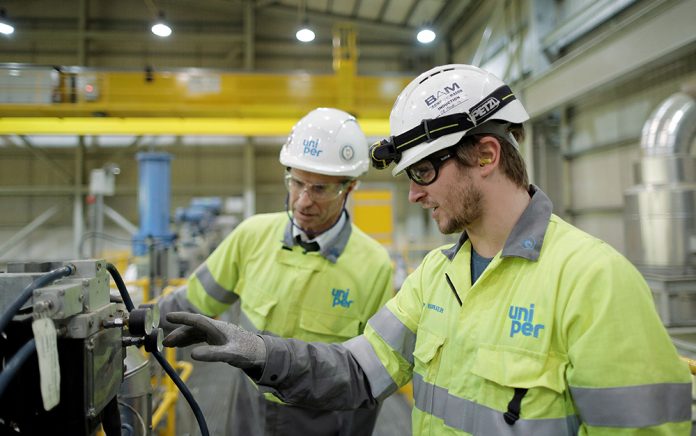As the United Kingdom transitions to a sustainable future, businesses are facing increasing pressure to reduce their carbon footprint.
Industrial companies significantly contribute to greenhouse gas emissions, and the decarbonization of these businesses is crucial for achieving the United Kingdom’s goal of reaching net-zero carbon consumption by 2050. Uniper is playing a significant role thanks to its extensive experience in the energy sector and its ambitious goal to make its own energy generation in Europe climate-neutral by 2035. This is being achieved through partnerships with other energy-intensive industries that are also on the path towards achieving their net-zero emissions targets. The future use of low-carbon fuels such as hydrogen is one of the ways Uniper can support industrial decarbonization in the United Kingdom. One example is the Humber H2ub project being developed at Uniper’s Killingholme power station.
Killingholme Energy Conversion Center
Uniper’s Killingholme power station, located in the heart of the Humber industrial area,is playing an important role in decarbonization and economic growth in the region.
It is helping customers in this industry cluster transition to a carbon-free future. Uniper is collaborating with Shell on the Humber H2ub® project, a 720-MW facility for low-carbon hydrogen production. It will utilize gas reforming technology to produce low-carbon hydrogen and capture and store the resulting carbon dioxide emissions.
According to Uniper’s plans, the Killingholme site could produce low-carbon hydrogen by the end of the 2020s, which could then be used for the decarbonization of heavy industry, transport, heating, and power generation in the Humber region. The planned production of blue hydrogen at Killingholme could sequester approximately 1.6 million tons of carbon per year. This is therefore a crucial pillar in the British government’s goal to sequester 10 million tons of carbon annually by 2030. Low-CO2 hydrogen could thus be produced at the Killingholme site before the end of this decade. This would further contribute to making the Humber a leading hub for clean energy generation. The associated positive side effects include securing the future of the local industry and creating skilled job opportunities in the region.
How can the energy transition to carbon neutrality be achieved?
Low-carbon hydrogen and its derivatives are just one of the possible options for decarbonization. Uniper also offers the following technologies and fuels, or a combination thereof, to achieve net zero. Uniper is transforming its own power plants and facilities and investing in flexible and secure power generation facilities for this purpose. This includes investments in solar and wind power plants, with the goal of using more than 80 percent of installed power capacity for CO2-free electricity production by 2030. In addition to wind turbines and solar panels, high-efficiency gas-fired cogeneration plants – which simultaneously generate heat and electricity and achieve efficiencies of up to 90 percent – may be an option. These plants are particularly well-suited for supplementing their own energy supply and significantly reducing CO2 emissions.
Especially in recent months, the topic of electrification has come into focus again. Electrification provides an opportunity to reduce costs and emissions in various industrial sectors. However, to harness these new forms of energy, storage capacity must also be made available – either on the electrical side or on the steam side of the process. These technologies cannot be adopted by every industrial company. For example, if applications are required that cannot be provided through electrification, such as high-temperature heat, companies must then resort to alternative sources of energy. Given the large number of company-specific requirements and the numerous technological options, it becomes clear once again that CO2 neutrality and energy procurement are very complex and at the same time extremely existential issues.



